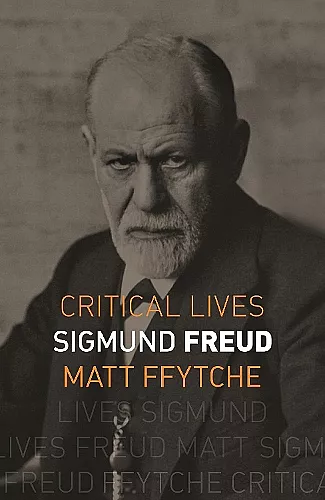Sigmund Freud
Format:Paperback
Publisher:Reaktion Books
Published:16th May '22
Should be back in stock very soon

However much his work has been reviled or contested, Sigmund Freud remains one of the most significant thinkers of the last 150 years. He founded psychoanalysis, and his vision of human behaviour and the unconscious mind has provided a compelling paradigm for understanding society for much of the twentieth century. In this gripping new account, Matt ffytche draws on the latest research into Freud’s impact and historical context, making the case for his continuing relevance in analysing the vagaries, resistances and desires of the human mind. Engaging and accessible, Sigmund Freud will appeal to both students and the general reader, as well as anyone engaged with mental health, dreams and the hidden depths of human experience.
'I am an admirer of Matt fyttche’s work – he is an excellent historian who has contributed a great deal to the understanding of the origins and development of psychoanalysis. This book is characteristically accurate and reliable and so will be useful for readers wanting to get a broad understanding of Freud’s ideas and some sense of what they might continue to offer to contemporary thought.' – Stephen Frosh, Professor of Psychology, Birkbeck, University of London
ISBN: 9781789145793
Dimensions: unknown
Weight: unknown
232 pages